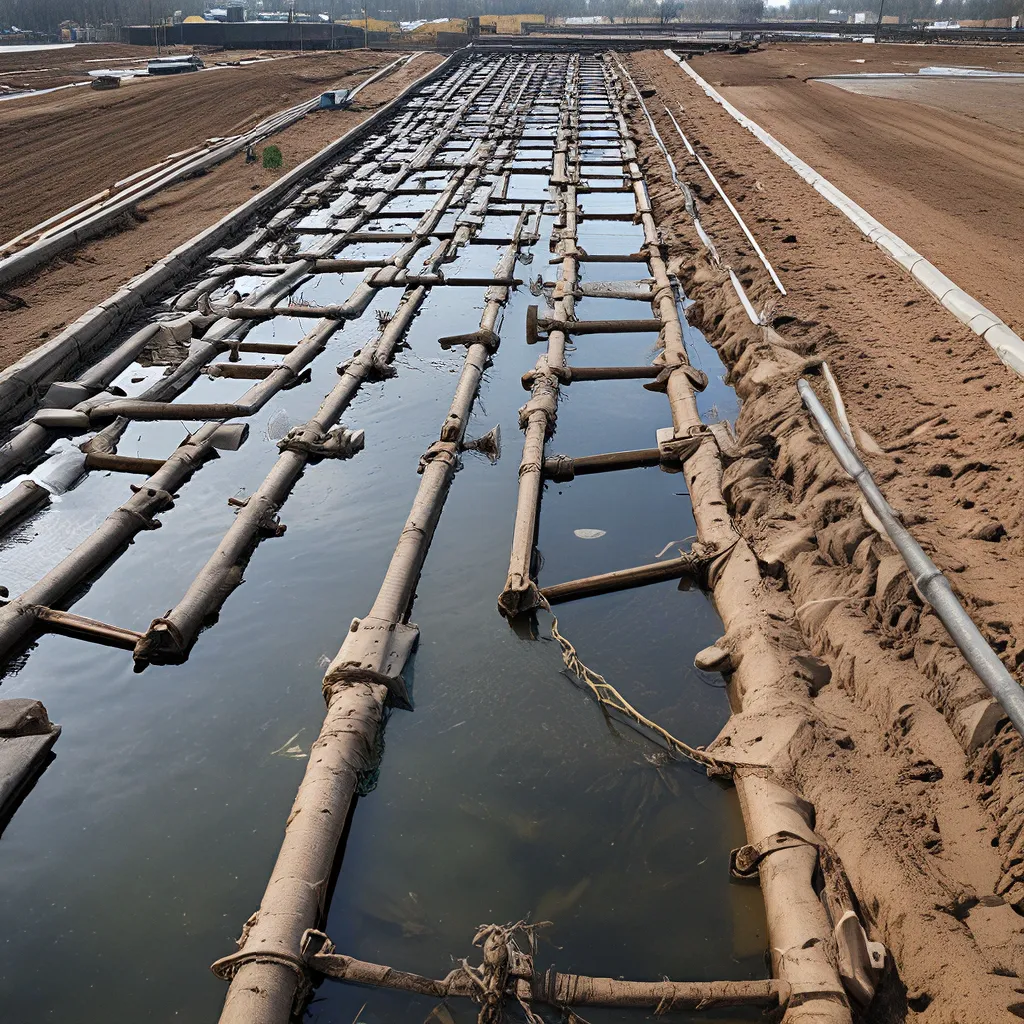
In today’s world, where environmental consciousness is on the rise, the concept of waste transformation has taken center stage. No longer are we content with simply disposing of our wastewater – we’re seeking innovative ways to unlock its inherent value and turn it into a valuable resource. And let me tell you, the possibilities are truly exciting!
Tapping into the Treasure Trove of Wastewater
You know, I used to think of wastewater as, well, just that – waste. But the more I’ve learned about it, the more I realize it’s like a hidden treasure trove, just waiting to be discovered. It’s packed with all sorts of valuable materials, from nutrients and energy sources to precious metals and even usable water. The key is finding the right way to extract and repurpose these resources.
Nutrient Recovery: Turning Waste into Fertilizer
One of the most promising avenues for wastewater resource recovery is the extraction of nutrients like nitrogen and phosphorus. These valuable compounds are often the bane of water treatment facilities, as they can lead to algal blooms and other environmental issues if not properly managed. But did you know that these nutrients can actually be recovered and transformed into high-quality fertilizers?
“Nutrient recovery from wastewater is a game-changer,” says Dr. Sarah Jacobs, a leading expert in the field. “By extracting these essential nutrients, we can reduce the environmental impact of wastewater discharge and create a sustainable source of fertilizer for agricultural use. It’s a true win-win scenario.”
Energy Generation: Harnessing the Power of Wastewater
But nutrients aren’t the only valuable commodity hiding in our wastewater. There’s also a treasure trove of energy potential, just waiting to be tapped. Through processes like anaerobic digestion, we can harness the methane and other biogases produced by the breakdown of organic matter in wastewater, and use them to generate clean, renewable energy.
“The energy potential of wastewater is truly staggering,” explains Michael Chen, a research engineer at a leading water treatment facility. “We’re talking about the ability to power entire communities, all from the waste that would otherwise just be flushed down the drain. It’s a game-changer for sustainability and energy independence.”
Metal Recovery: Mining the Urban Mine
But the treasure trove of wastewater doesn’t stop there. Believe it or not, our wastewater also contains trace amounts of valuable metals, from gold and silver to rare earth elements. And with the growing demand for these materials in everything from electronics to green energy technologies, the potential for recovery is huge.
“We like to think of wastewater treatment plants as the ‘urban mines’ of the future,” says Dr. Lina Zhao, a materials scientist specializing in resource recovery. “By developing innovative extraction techniques, we can unlock the hidden value in our wastewater and reduce our reliance on traditional mining operations, which can be environmentally damaging.”
The Circular Economy in Action
But the real beauty of wastewater resource recovery is that it’s not just about extracting valuable materials – it’s about creating a truly circular economy, where waste becomes a valuable resource. By closing the loop and turning our wastewater into a renewable source of nutrients, energy, and even precious metals, we can reduce our reliance on finite resources, lower our environmental impact, and build a more sustainable future.
Alpha Wastewater, for example, is at the forefront of this movement, helping municipalities and industrial facilities unlock the value of their wastewater through cutting-edge treatment technologies and innovative resource recovery strategies. “We’re not just in the business of waste management,” says the company’s CEO, “We’re in the business of creating a more sustainable, circular future.”
The Road Ahead: Challenges and Opportunities
Of course, transforming our approach to wastewater management isn’t without its challenges. “There are still significant technical, economic, and regulatory hurdles to overcome,” notes Dr. Jacobs. “But the potential benefits are so great that we simply can’t afford to ignore them.”
One of the biggest challenges is the need for investment in new infrastructure and technologies. “Many of the resource recovery processes we’re talking about require specialized equipment and facilities,” explains Chen. “Securing the necessary funding and political will to make these investments can be a real uphill battle.”
However, there are also plenty of reasons to be optimistic. “We’re seeing a growing awareness and demand for sustainable solutions among both consumers and policymakers,” says Dr. Zhao. “And the rapid advancements in fields like biotech and materials science are opening up all sorts of exciting new possibilities for wastewater resource recovery.”
A Future Built on Wastewater
So, what’s the bottom line? Wastewater is no longer just a problem to be solved – it’s a valuable resource to be unlocked. By embracing the principles of the circular economy and investing in innovative resource recovery technologies, we can transform our approach to wastewater management and build a more sustainable, resilient future.
“This is just the beginning,” says the CEO of Alpha Wastewater. “The possibilities are endless, and I can’t wait to see what the future holds. Who knows, maybe one day we’ll all be driving cars powered by the methane from our own sewage!”
So, are you ready to dive in and explore the treasure trove of wastewater? Because the future is waiting, and it’s looking brighter than ever.